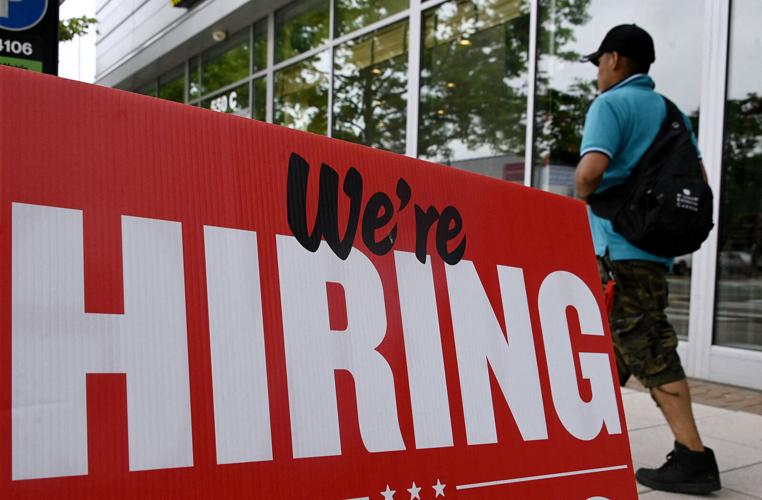Earth to politicians: It’s still the economy, stupid
Our local, state and national politicians all seem to have gotten distracted already from the message voters sent last fall. It’s not about Ukraine, tariffs, DOGE, unions or assault weapons. It’s about the fact that we can’t afford the increasing cost of our lives.
A forum last week in Denver entitled “Eggs and the Economy” reminded all of us there that the average person in Colorado must spend $10,451 more per year – nearly 13% of their annual income – to consume the same quantity of goods and services they did in 2019.
Colorado’s cost of living is now the 14th highest in the nation, ranking above states like Florida, Texas, Virginia and Illinois. Among cities, Denver is ranked 13th and Colorado Springs 21st.
Kitchen table issues are what we all care about most. We need our politicians to keep their eye on the ball. As James Carville said 17 years ago, it’s (still) the economy, stupid.
The latest inflation report from the Common Sense Institute, which put on last week’s forum, did have some good news: prices in the Denver metro area rose at a slower pace in the last two months than they have nationally, as they did in the last year. Despite this, Denver metro households are still dealing with increased household costs, particularly in the largest segments of household spending such as medical care.
Transportation costs are also challenging. The national average for transportation cost growth was 2.43% between January ‘24 and January ‘25, while the Denver metro area’s growth almost quadrupled the national amount at 8.3%.
And though the housing market is starting to pick up again this spring, let’s not forget that average housing costs in Colorado increased 214% increase from 2021 to 2023.
In a January presentation to a gathering of metro Denver’s mayors, pollster Floyd Ciruli pointed out that during the past five years, Colorado has barely had more people arriving than leaving the metro area, and Boulder and Jefferson counties have seen more people move out than in.
As a result, sales tax revenue, the lifeblood of local government, has stagnated for three years in the Denver metro area, which is one of the state’s tax revenue engines. Job growth slowed in 2024, unemployment is up — the highest since November 2021 — and Colorado’s GDP is down, Ciruli said.
“While still dealing with homelessness, immigration and crime, this new era will require a reprioritization with increased focus on the economy,” Ciruli said. “Cities must secure and enhance municipal revenue streams with healthy retail, new and secure jobs, and a stable cost of living.”
To make matters worse, the stalled economic picture comes as federal dollars are vanishing with Elon Musk’s focus on massive cuts to federal grants and the federal government, and a new report warns that new tariffs on Mexico and Canada could have a “severe” impact on the state’s economy.
We need our state and local politicians to keep their head in the game and prioritize helping consumers find better ways to cope with the high cost of living.
Instead, we are getting some boneheaded suggestions.
Denver Mayor Mike Johnston, in a bid to help restaurants, recently proposed a mandatory 20 percent service fee be added to all restaurant bills.
“I don’t understand how somebody who is so nominally smart as Mike Johnston could come up with an idea this bad,” said Ross Kaminsky, CSI’s new Mike A Leprino Free Enterprise Fellow, who also hosts the “Ross Kaminsky Show” on KOA radio.
“Much of that 20 percent service fee would be offset by a reduction in willingness to tip. People will say, well, this is the tip, or mostly this is the tip.” Ross said.
A quick report by CSI showed that the fee would kill a little over 1,100 jobs in the restaurant business in the Denver metro area, cut Denver GDP by about $175 million, and lead to a decline in company sales of over $300 million by 2030.
“It’s a shockingly bad idea,” Ross adds.
Another proposal that could hurt rather than help consumers is the bill to make it easier for companies to unionize by dropping the second election required to set up a union shop agreement.
Senate Bill 5 would essentially make Colorado a right-to-organize state. So CSI studied what the economy looks like in other right-to-organize states with collective bargaining, like we already have in Colorado.
“And what we saw is that the cost of living in all of those states is higher,” said Tamra Ryan, the economic mobility fellow for CSI.
Senate bill 5 is about worker’s rights and raising worker salaries, but Colorado just passed a pretty dramatic minimum wage hike. In Denver now minimum wage is $18.81 an hour, which is over $10 more than the national minimum wage of $7.25, so wages are pretty high here already.
Ryan believes we ought to leave our Labor Peace Act alone and allow the employment ecosystem to settle into the high minimum wage and its impact first.
“We don’t tend to think of things as systems,” Ryan said. “We tend to move one lever and then perhaps not even wait until that one lever rolls out and the system recalibrates. I believe we’re trying to make a lot of change in a short amount of time without allowing the system to settle.”
Another thing our politicians are doing is driving up energy costs for all of us.
Spurred on by state policy mandates to reduce greenhouse gas emissions, electricity prices are projected to grow at more than three times the rate of inflation and nearly 13 times the growth rate from 2010 to 2020, according to a recent CSI report.
“I think what we’ve seen over the past five, 10 years is a real inability as a state, as a nation, as a world to have a reasonable conversation about what our energy future looks like,” said Lynn Granger, president and CEO of the Colorado Oil & Gas Association.
She mentioned that the last energy source we completely transitioned away from is whale oil, so it’s been a while since we had this significant of a transition.
“As a world, we have used more coal in the last couple years than we have in our history,” she noted, “and we are on track in 2025 to surpass that again, largely due to the coal plants China and India are bringing online.”
“So this discussion about getting away from natural gas is just not feasible,” she said. “It’s not reasonable. And I think that at the end of the day that’s what is really driving up consumer costs because our inability to have a public, reasonable conversation about it is making people think we can get there sooner than we can. Or that we get there at all.”
In fact, the head of Colorado Springs Utilities just announced that the agency cannot meet the state’s timeline for renewable energy changes because of rising costs and logistics, and is seeking alternative paths from the state.
The statewide goals call for an 80% reduction in greenhouse gas emissions from power by 2030 and to have all the state’s power come from renewable sources by 2050.
Colorado Springs hasn’t heard back from the governor yet, nor from any environmentalists pressing for compliance yet.
So what will the legislature do to help consumers this year? It may be that the less they do, the better consumers make out.
The Colorado General Assembly passed a record numbers of bills in four of the last six years, and CSI showed that more active legislation creates a larger web of regulatory complexity.
A recent Colorado Chamber report found that Colorado is the sixth most regulated state in the nation, and 44 percent of our regulations are either redundant or unnecessary.
“You’d think that our policy makers would be focused on trying to balance the budget, not attacking economic drivers in our state. But you continue to see legislation being pushed … that increases costs and regulatory burdens,” Granger said.
With rising Medicaid costs, the state is now in a $1.2 billion budget hole.
“When we talk about the increased regulation, increased burden, increased costs, it is absolutely outrageous,” Granger concluded.







